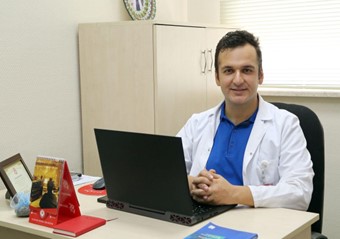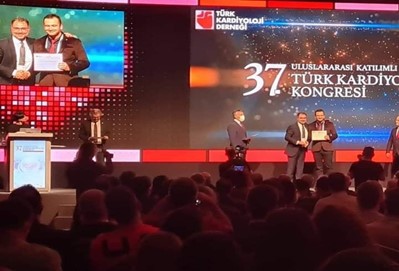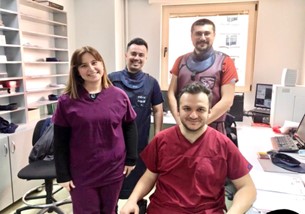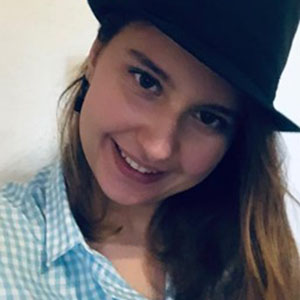Interview With Mevlut Serdar Kuyumcu, MD

Mevlut Serdar Kuyumcu, MD, was born in 1987 in Isparta, Turkey. He graduated from Hacettepe Faculty of Medicine in 2012. In 2017, he completed his cardiology fellowship from Ankara Yuksek Ihtisas Hospital. In 2018, he became an assistant professor at the Suleyman Demirel Medical Faculty. During this time, Kuyumcu also received electrophysiology training at Ankara Yuksek Ihtisas Hospital and Pasteur Clinic in Toulouse, France. In 2021, he established the electrophysiology laboratory at the Suleyman Demirel Medical Faculty. After evaluation of his impact on medicine and research, Kuyumcu was named the "3rd Most Successful Young Cardiologist of the Year" by the Turkish Cardiology Association in 2019, the "2nd Most Successful Young Cardiologist of the Year" in 2020, and the "1st Most Successful Young Cardiologist of the Year" in 2021. Kuyumcu has been playing bass guitar since his youth and enjoys listening to heavy rock and metal music. He loves spending time with his wife and sons, traveling, folk dance, computer games and going to the movies.
Why did you choose cardiology and electrophysiology?

The first factor that led me to cardiology was my father's heart disease. Then, as I did more research, I saw that cardiology was one of the most life-saving branches of medicine that hovers on the line between death and life. Bringing a patient back to life after they present with a heart attack still makes me as happy today as it was on the first day of my profession. Then, as I progressed in the profession, my interest in electrophysiology grew stronger. I began to see each case more like solving a puzzle, the more I liked it. It's the most thriving field in cardiology and every case feels like a Sherlock Holmes case.
Conducting clinical research and studies is a very challenging process. Can you tell us about your experiences in research? What advice do you have for students about getting involved in research?
Learning the scientific method is an arduous process. Even once you learn it, it can be challenging at first to conduct clinical research, turn it into an article, and then get it published. My first article was rejected by nine scientific journals before it was published. However, each reviewer's criticism makes a contribution. And, in the end, you strengthen your writing skills. Throughout this research process, the most important thing is not to lose hope and determination.
What were the steps you took and the sacrifices you have made throughout your medical journey?
Treating each case as a puzzle waiting to be solved is really helpful in academic terms. I think that making case publications, collecting cases and comparing them with each other add a lot of academic satisfaction to me. It has been very helpful to follow literature closely. Being inspired by new publications and following the trends is very helpful in publishing. However, besides being an academician, our duty as doctors is intense and challenging.
How do you think mentoring should work and what kind of mentor do you want to be in the future?
First of all, mentors should try to teach everything they know to their mentees. If they do this, I think that individuals will be good mentors. They should also aim to counsel the student so that they achieve greater accolades than their mentor. As a mentor myself, I strive to show mentees the beautiful side of our work in electrophysiology.
What do you think the future of electrophysiology will be?
To me, electrophysiology is the most exciting and evolving field of cardiology. Mapping and ablation technologies are advancing. In the future it will be used more actively with robot-guided catheters and will perhaps even identify the ablation site and deliver energy non-invasively without the need for invasive intervention. Thanks to the small implants added to the transmission system, we will be able to get rid of cables, generators and thus device infections.

Finally, what advice do you have for medical students?
I would like to end with a quote from Daniel L. Reardon: "In the long run, the pessimist may be proved right, but the optimist has a better time on the trip."
Author Acknowledgments
Prior to clinical rotations, my colleagues and I had virtual clinic training for a while at the beginning of the pandemic. We were writing our questions to our professors via email and that is how I met my esteemed mentor. When I told him that I wanted to work with him, he was very positive and gave constructive feedback on my ideas. When I attended the clinic training, I had the opportunity to meet him face to face. It was a pleasure for me to meet him in person because I saw him as my role model and a very successful cardiologist whose work I had been following for about a year. During my cardiology rotation, I was constantly going to the outpatient clinic to learn from my mentor's communication style with patients and his approach to cases. Frankly, I was looking for an answer to my question on what kind of doctor I should be. Additionally, my interest in electrophysiology increased as I scrubbed into my mentor's ablation procedures. He taught me the principles of electrophysiology and I always learned something new at each case, which I continue to do on a weekly basis.
Then, when the opportunity arose to conduct research with my mentor, I ran into some difficulties in what I had originally planned, so I learned that I still had a long way to go to fully understand and conduct the research. My mentor's support during this process was priceless to me as he shared his research experience and motivation with me. I still remember all the words of wisdom he would share with me during my times of difficulty, I will always keep his words in my heart as I advance in my career. If I am ever asked, "What kind of mentor you want to be in the future?" I will easily answer, "Like my own mentor." He is a very kind and down-to-earth individual who has been hugely successful as a cardiologist and electrophysiologist, as well as an accomplished researcher and certainly a great mentor.

This interview was conducted by Sebahat Ulusan, a medical student at Suleyman Demirel University Medical School in Isparta, Turkey. Ulusan is a member/editor of the ACC's Medical Student Leadership Group.
This content was developed independently from the content developed for ACC.org. This content was not reviewed by the American College of Cardiology (ACC) for medical accuracy and the content is provided on an "as is" basis. Inclusion on ACC.org does not constitute a guarantee or endorsement by the ACC and ACC makes no warranty that the content is accurate, complete or error-free. The content is not a substitute for personalized medical advice and is not intended to be used as the sole basis for making individualized medical or health-related decisions. Statements or opinions expressed in this content reflect the views of the authors and do not reflect the official policy of ACC.

